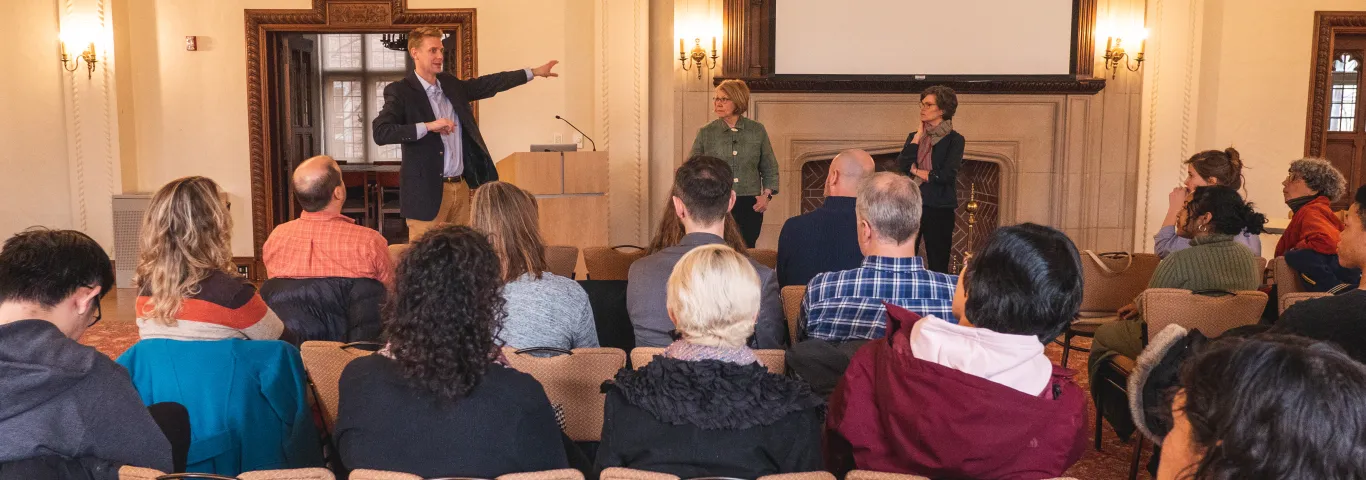
Not long into her portion of the discussion about Environmental Studies across the Arts and Sciences, Susan Scott Parrish told a story. She described how she and her family were motivated to change their energy consumption habits after receiving an energy bill comparing her household’s energy use to that of their neighbors. Parrish’s anecdote seemed to capture an essential element of the event itself, for how Parrish interacted with the environment changed when she was made aware of her neighbors right next door. The university has many neighbors right next door, many of whom do not know what goes on within each other’s halls. Through stories of individual experience and expertise drawn from different areas of study, Susan Scott Parrish (Professor of Literature at the University of Michigan) and Dean Barbara Schaal (Mary-Dell Chilton Distinguished Professor of Biology) each advocated for interdisciplinary approaches to environmental issues and demonstrated the rich possibilities that emerge when academics interact with their neighbors.

Although the “and” in “Arts and Sciences” can sometimes function more like an “or,” that definitely was not the case for this event. Parrish, whose research interests incorporate race and the environment, including how narratives about natural disasters are created in real-time, highlighted university opportunities that bring the arts and sciences together, including the University of Michigan’s Great Lakes Arts, Cultures, and Environments (GLACE) program. Afterwards Dean Schaal explained how her work with the Obama administration and participation in the former AMCS Lewis and Clark course (which combined environmental studies, humanities, and camping) transformed the way she saw science. Embedded in the discussion and Q&A was the idea that interdisciplinary engagement and getting outside of the classroom can help us “recode” (an expression Parrish used) our individual understanding and methods of interpreting our relationship with the world we share.
I left the event feeling inspired and hopeful, and given today’s political and social climate, I do not want to take that inspiration and hope for granted. As Schaal and Parrish made clear, tackling environmental issues is not the task of any one discipline. Environmental concerns are human concerns, and different approaches to answering the same questions can significantly enhance our ability to solve problems, enrich our understanding, and approach the world around us with greater knowledge and care.






